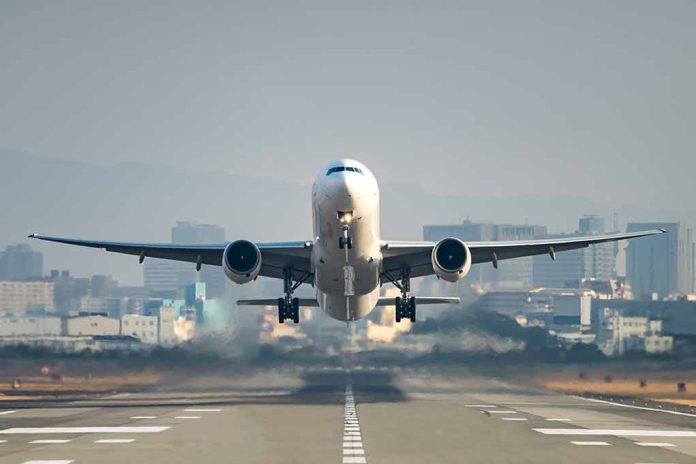
A coalition of U.S. aviation and aerospace industry groups is calling for an urgent overhaul of the nation’s air traffic control systems following recent deadly accidents.
Top Takeaways
- Aviation industry coalition urges Congress to modernize air traffic control systems
- Recent aviation accidents prompt calls for enhanced safety measures
- Emphasis on hiring and training air traffic controllers to address staffing shortages
- Push for investment in cutting-edge technology and infrastructure upgrades
- Opposition to privatization of air traffic control services
Industry Coalition Demands Urgent Action
In a united front, a diverse coalition representing U.S. aviation and aerospace interests has sent a compelling letter to Congress, urging immediate action to modernize the nation’s air traffic control (ATC) system. This call to action comes in the wake of several recent aviation accidents, including a fatal collision near Washington, D.C., and a non-fatal crash in Toronto, highlighting the pressing need for enhanced safety measures within the National Airspace System (NAS).
The coalition, which includes major airlines, aircraft manufacturers, and industry associations, emphasizes the critical importance of maintaining a globally competitive and safe NAS. Their primary objectives focus on supporting air traffic controller hiring and training, improving procurement and program efficiencies, and addressing budget reforms for the Airport & Airway Trust Fund (AATF).
There's a growing media narrative that there are more airplane crashes now in Trump's presidency than under Biden. This is false. ⁰⁰Here are the facts: In Biden's first month, there were 57 aviation incidents in the U.S., compared to 35 under Trump.⁰⁰The need for immediate…
— Secretary Sean Duffy (@SecDuffy) February 20, 2025
Staffing Shortages and Technological Challenges
One of the most pressing issues highlighted by the coalition is the severe shortage of air traffic controllers. The Federal Aviation Administration (FAA) is currently facing a deficit of approximately 3,500 controllers, leading to flight delays and mandatory overtime for existing staff. This staffing crisis has forced the FAA to reduce minimum flight requirements at New York City-area airports, potentially compromising safety standards.
“We must support air traffic controller workforce hiring and training, modernize and deploy state-of-the-art air traffic control facilities and equipment,” said the group.
Compounding the staffing issue is the outdated technology currently in use by the FAA. Many ATC facilities are over 50 years old, requiring billions of dollars for repairs and replacements. The FAA’s communications system is particularly problematic, with difficulties in obtaining spare parts. A stark example of the system’s vulnerability was the January 2023 outage of a pilot alerting system, which caused a nationwide ground stop affecting over 11,000 flights.
Calls for Investment and Reform
To address these critical issues, the coalition is calling for emergency funding to upgrade ATC technology and infrastructure, as well as to bolster controller staffing and training programs. They urge Congress to guide the FAA in divesting legacy NAS elements and adopting new procurement methods for advanced technology. Additionally, the group seeks additional financial mechanisms, such as multiyear budgeting, to enhance safety using AATF balances.
Earlier this month President Trump called for a bill to modernize air traffic control facilities and systems. However, the coalition stresses that any funding increase requires congressional approval and the president’s signature. The support from lawmakers for increased funding remains uncertain, although key figures such as Senators Ted Cruz and Maria Cantwell have emphasized the need for enhanced aviation safety.
Opposition to Privatization
While pushing for substantial reforms, the coalition firmly opposes the privatization of U.S. air traffic control services. They view such efforts as a distraction from the necessary investments and reforms needed to address the current crisis. Instead, they advocate for public-led initiatives and fiscal reforms to secure the desired advancements in aviation safety and efficiency.
As the aviation sector continues to face scrutiny due to staffing shortages and outdated technology, industry leaders remain cautiously optimistic about the potential for meaningful reforms. With the safety and efficiency of the National Airspace System at stake, the coming months will be crucial in determining whether the coalition’s calls for action will result in the comprehensive overhaul they deem necessary.






















